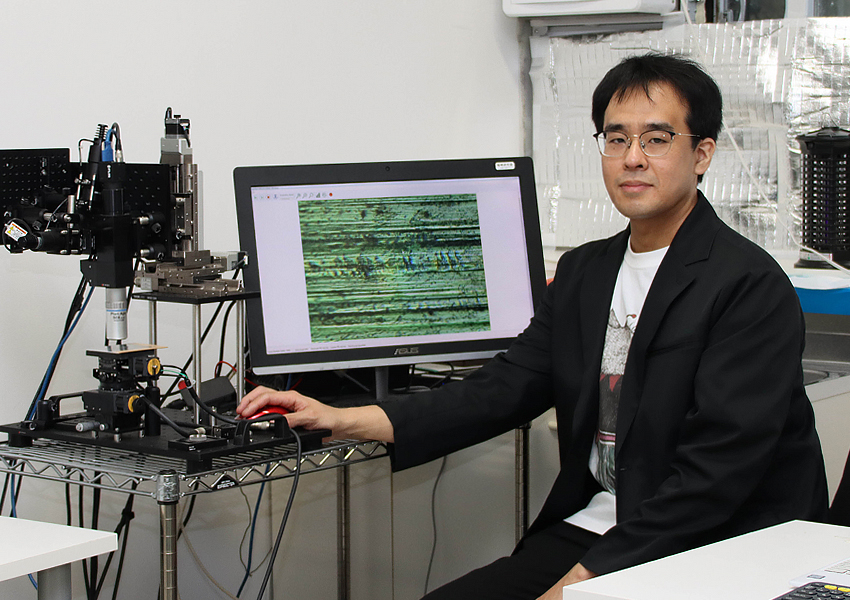Specializing in Audio and Image Processing Research interests include Voice and Image Recognition Technology
Profile
Dr. Koosuke Hattori graduated from the Department of Computer Science and Engineering at the Nagoya Institute of Technology, where he received a Ph.D. in Engineering. He arrived at Chubu University in 2014 after working as a postdoctoral researcher at the Robotics Institute of Carnegie Mellon University in the United States. He is currently an Associate Professor in the Department of Astronautics and Aeronautics, College of Science and Technology.
Born in Aichi Prefecture, Japan, his hobbies include visiting museums and art galleries, and cooking. His favorite food is bread, and he enjoys frequenting his favorite bakery in Nagoya, where he has gotten to know the owner quite well.
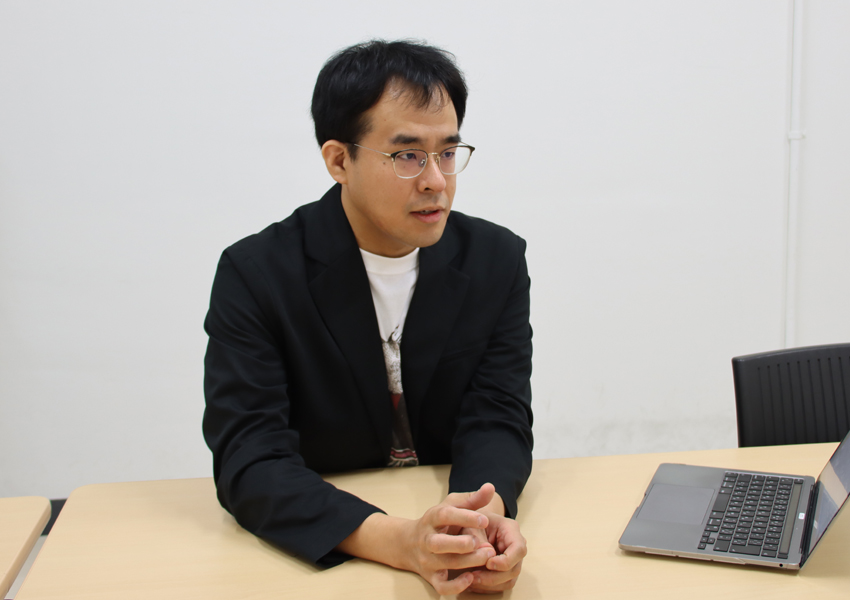
Close up with Dr. Hattori!
I am mainly researching image sensing (a technique for acquiring quantitative information about an object to be measured using detectors, sensing devices, and measuring instruments). To acquire information, it is necessary to develop both a device, “hardware,” and a recognition / mesurement method, “software.” I built the optics hardware in optical instruments such as lasers and lenses suitable for acquiring the necessary information. Next, image processing, statistical processing, and AI (artificial intelligence) are used for recognition and visualization, and finally, software is developed to process the acquired information. Research targets range from aircraft and automotive components biological tissues and gas flows. I get the most gratification out of seeing the sensing systems being put to use productively in companies and hospitals.
In the past, we have used a laser scanner to measure and quantitatively evaluate the faces of patients with facial paralysis in three dimensions, and we developed software to predict the course of treatment and prognosis based on statistics from the past 14 years of medical data. This system was integrated into a university hospital’s electronic medical record system and helps to reduce the psychological burden on patients by showing them predictions of their progress.
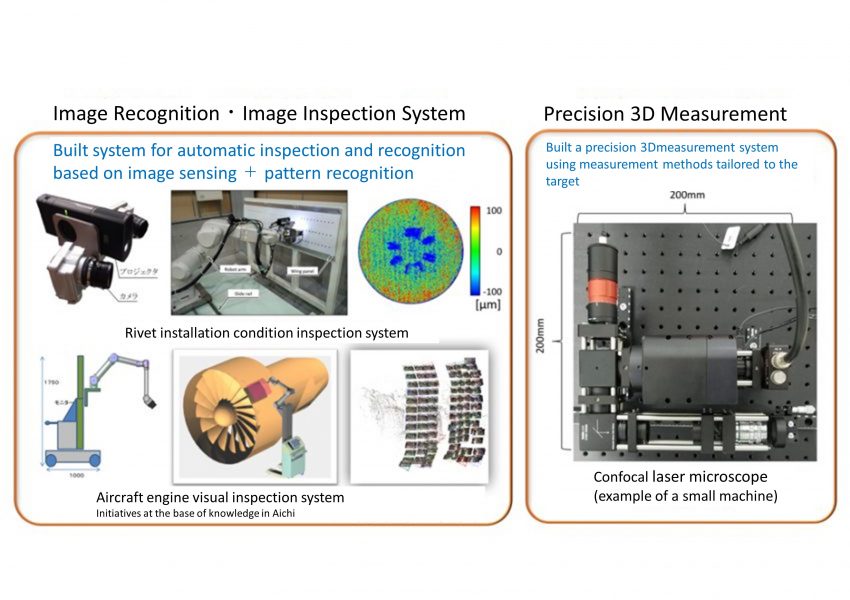
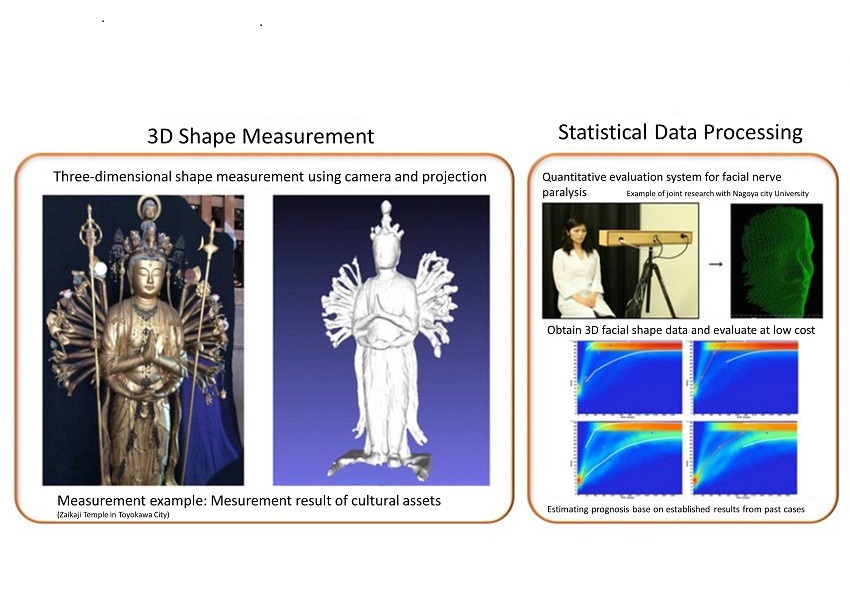
How did you start your research?
I loved animals in my childhood and read a lot of books about biology. When I became a junior high school student, I started programming on my own in a computer lab after school, which got me into the world of software and led me to create games as a hobby. I was very happy that more than 10,000 users played the online games I created when they were released on the Internet. I was thinking of joining a network software development laboratory in college, but when I was a junior at the Nagoya Institute of Technology, I visited the laboratory of Professor Taizo Umezaki (currently in the Department of Artificial Intelligence and Robotics, College of Science and Engineering at Chubu University), who was conducting more practical research on image and voice recognition, and I thought it seemed interesting, so I decided to join his lab.
Student Life
After coming home from school, I would cook dinner for my family while working on a game program. The culinary skills I acquired at this time were useful in communicating with people from other countries when I later worked as a postdoctoral researcher at an American university. For example, I sometimes introduced Japanese culture by making anko (red bean paste) or warabi mochi (rice cakes made from bracken starch), and other times I tried American cuisine, such as whole roasted turkey. I have a friend with whom I used to chat online and work on programs when we were students. We still keep in touch, and I sometimes ask him about current trends in the industry or use him as a reference to support students looking for jobs. I have never actually met this friend before, but it would be nice to see him someday. Or perhaps we could continue our relationship as online friends, which I also think would be interesting.
After joining the laboratory in my fourth year of university, I was able to conduct joint research with many companies and research institutions while learning image and voice recognition technology from my supervisor, Professor Umezaki. I had the opportunity to work with skilled engineers who had spent many years developing 3D measuring instruments and other hardware, as well as the inventor of the mini-disc, who is an expert in optics. Through these experiences, I was able to accumulate a wide range of necessary knowledge and skills. I had a really fast-paced and difficult time until I finished graduate school, but many people helped me to get to where I am today, and I am grateful to everyone around me. The knowledge and skills I have acquired have become my assets, and they will always be with me. I hope to share this wealth with my students.
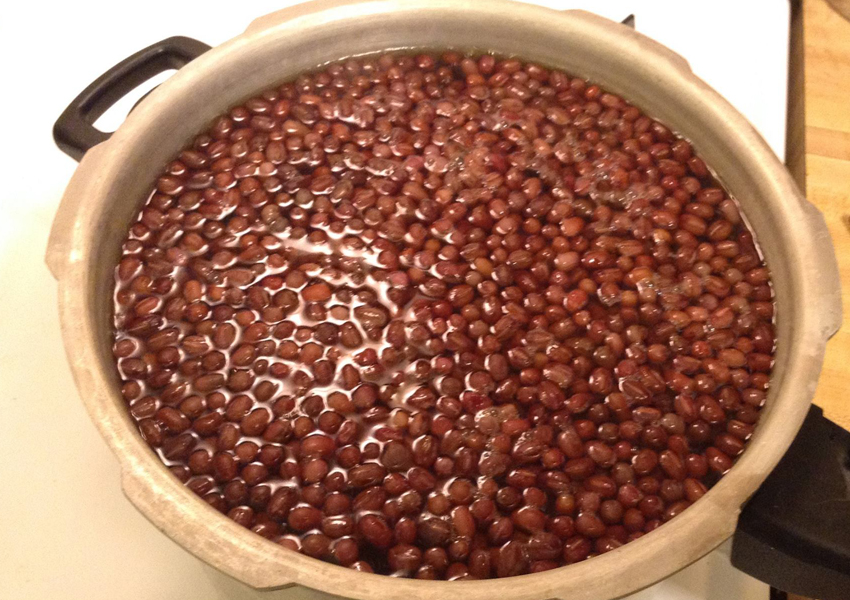
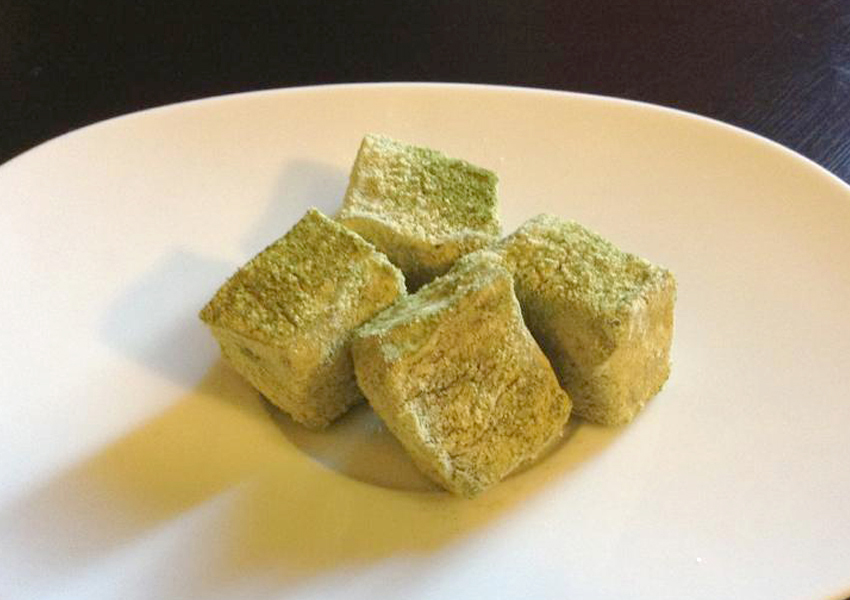
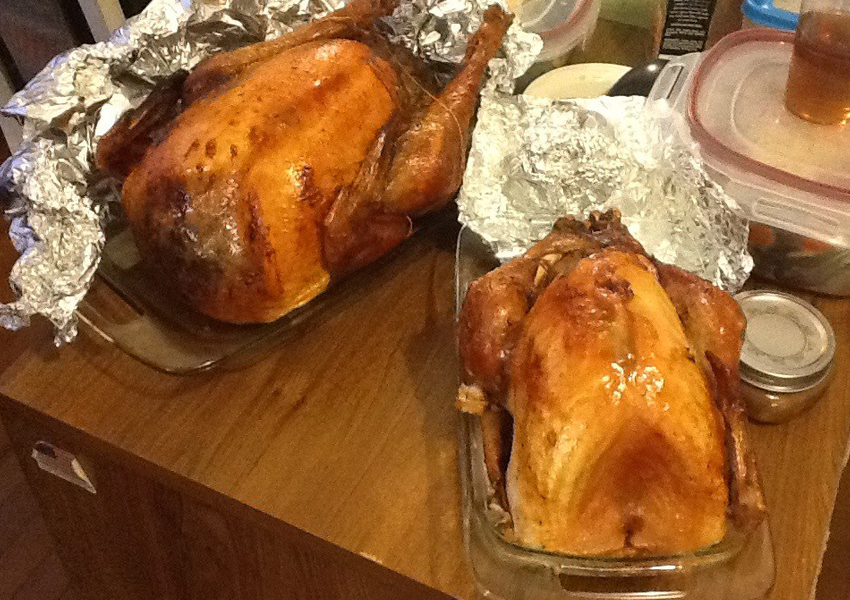
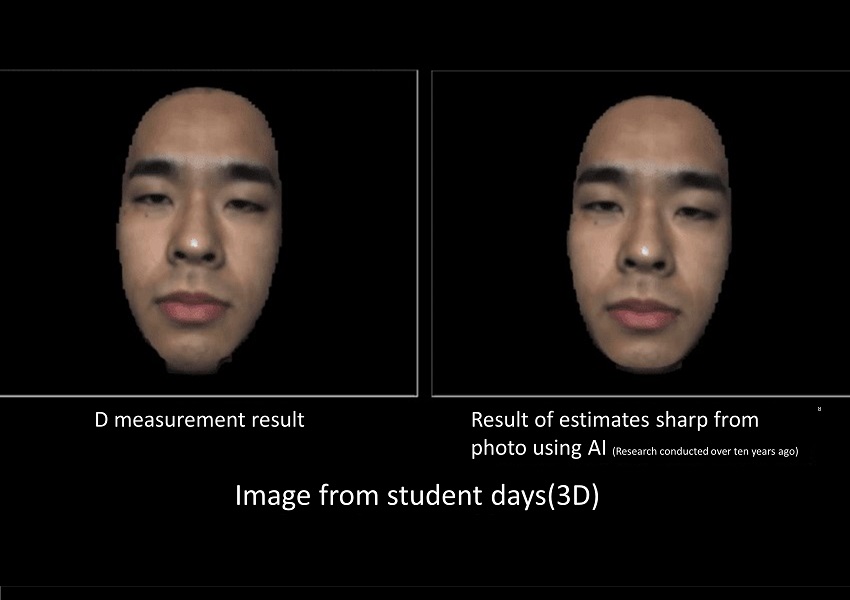
In 2020, when the COVID-19 pandemic made it difficult to conduct face-to-face lectures at the university, I attended a meeting to discuss how distance learning should proceed at Chubu.
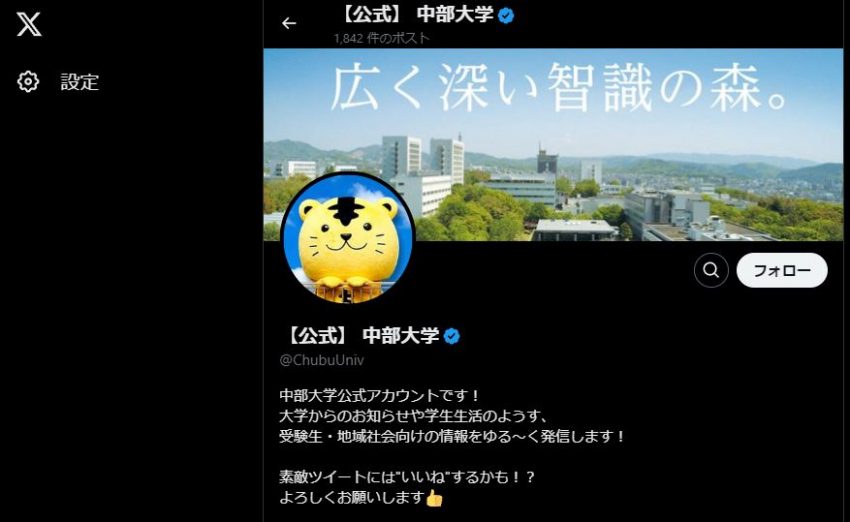
This led me to participate in a committee to study the renewal of Chubu’s online portal site for students, faculty, and staff, as well as a committee renewing university’s public relations. Discussions with younger faculty, staff, and students led me to the opinion that we should make more use of social media, and as a result, Chubu University’s official Twitter account was established in March 2022. I would like to continue to be involved in open discussions together with faculty, staff, and students and to be involved in the creation of a better university.
Message
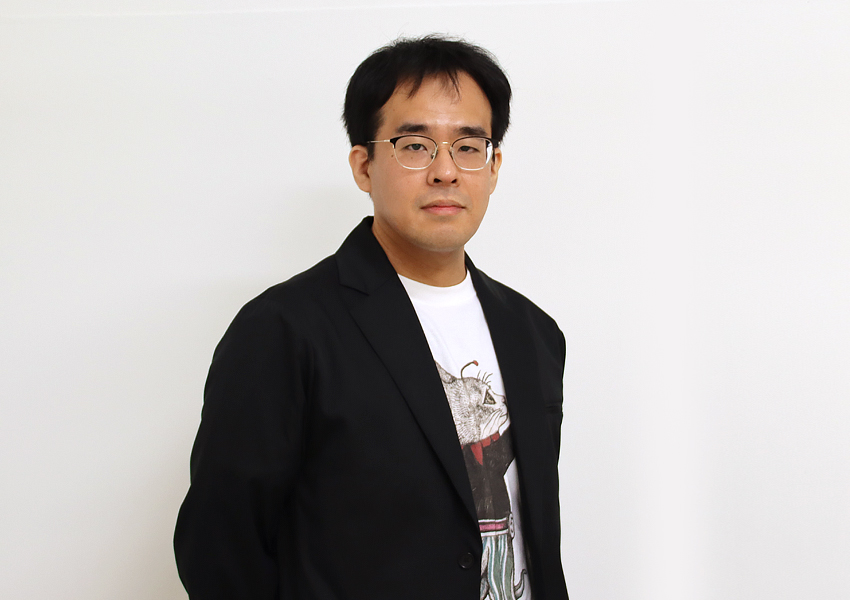
If you are not sure what to do, just give it a try. Chubu University has many facilities that support autonomous academic and research activities (e.g., “Monozukuri Workshop,” “Engineering Design Room,” “Computer Lab,” etc.), and the library collection is extensive. When I first visited the library, I was surprised to find not only academic books, but also Ghibli DVDs and Osamu Tezuka manga! I think Chubu is a caring university with many faculty members who are willing to help you if there is something you need or want to try. Last but not least, study hard…at least before exams.


